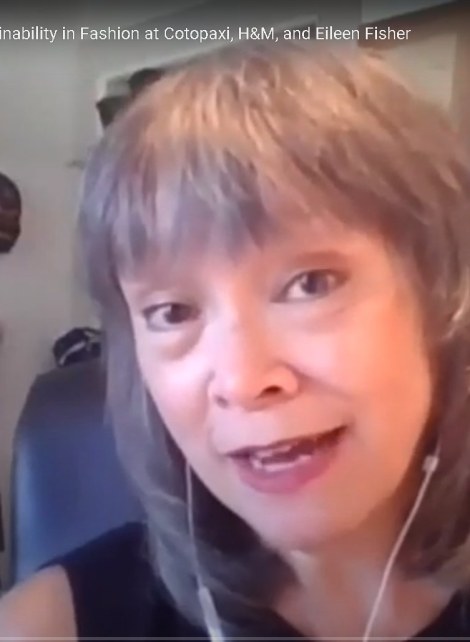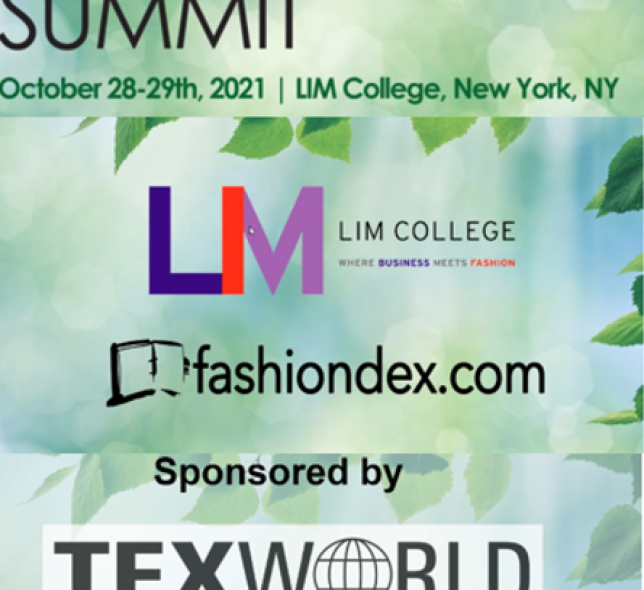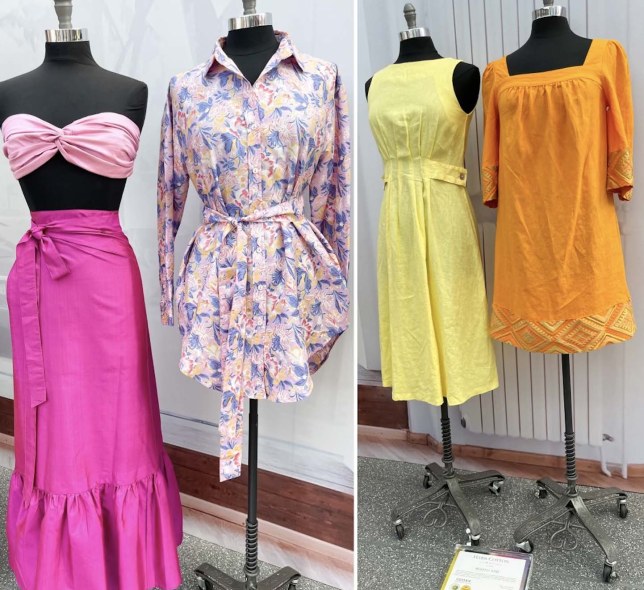The speakers were Amy Hall from Eileen Fisher, Annie Agle from Cotopaxi, and Abigail Kammerzell from H&M. I think my favorite part of hearing from these speakers is that these three companies could not be any more different! H&M is fast fashion, Eileen Fisher is luxury, and Cotopaxi is a backpack company, so hearing all of their points on sustainability was very interesting; despite having differing perspectives, many of their goals for their companies aligned. I took a ton of notes and I wanted to share some of my favorite things they said.
Amy Hall, Eileen Fisher
The first question that was asked was how do you approach sustainability? Annie brought up one of my favorite points; right away she talked about how there is often a conflict of interests between profitability, planet, and people. This is something I think about constantly, so I appreciated hearing it expressed. I often feel like because I care about being a sustainable thinker, I should amend my career plans in fashion, because the current model of the industry is not sustainable.
Annie Agle, Cotopaxi
She talked about how Cotopaxi can balance those ideals and how once you get to a point where the planet and people come first, profitability will follow, which I think is very uplifting. During the same question, Amy brought up that sustainability at Eileen Fisher goes all the way to the consumer. While in the design process thinking about durability and how the product can be cared for by the consumer influences their sustainable practices.
For a later question, Abigail brought up something similar about H&M implementing increased producer responsibility, the idea that the producer is responsible for the garment’s entire lifecycle. For a company like H&M to say that they will be increasing this accountability is a step in the right direction for fast fashion. Abigail also talked about how H&M’s goal is to make fashion accessible and I am hopeful that fast fashion brands will start to try to the increase durability of their garments and focus on less consumer waste.
One of my favorite topics discussed was about sustainability's loss of attraction with older generations. Annie said that she has found that that is not necessarily true; older generations are simply marketed to less, adding that by ignoring them we don't really know their feelings towards sustainability. That reminded me of a class in my freshman year where a group did a project on Ann Taylor and said they should increase their sustainability as well as market towards a younger audience; my professor said there is no reason to try to attract a younger audience who may not be interested in the product. To be trendy in fashion, I feel there is a misconception that you have to be "young," but that is not the case; we just always see and talk about younger generations.
Lastly, I loved when Annie talked about using pre-orders to gauge consumer interest. By doing pre-orders, Cotopaxi significantly cuts back on overproduction, which is one of my biggest concerns with consumerism today. Hearing there are options to fix that concern is great!
This was the second Zoom call I watched and took notes on, and I am going to one more in September. I adore hearing about the future of so many of these companies, and it truly makes me feel better about participating in the industry!
To register to join the next session click here.



